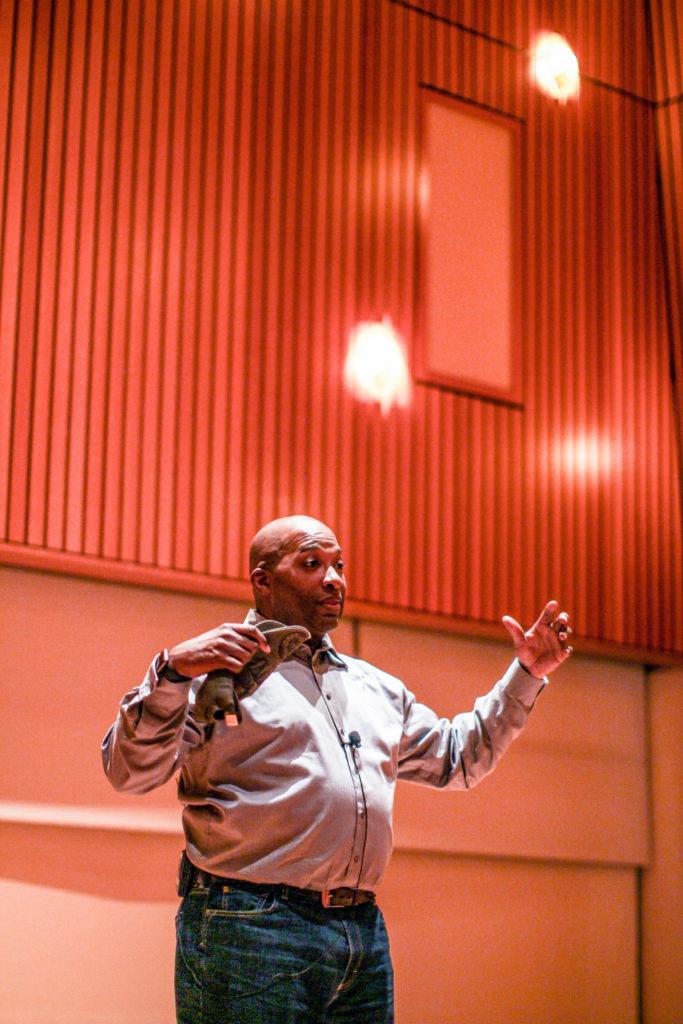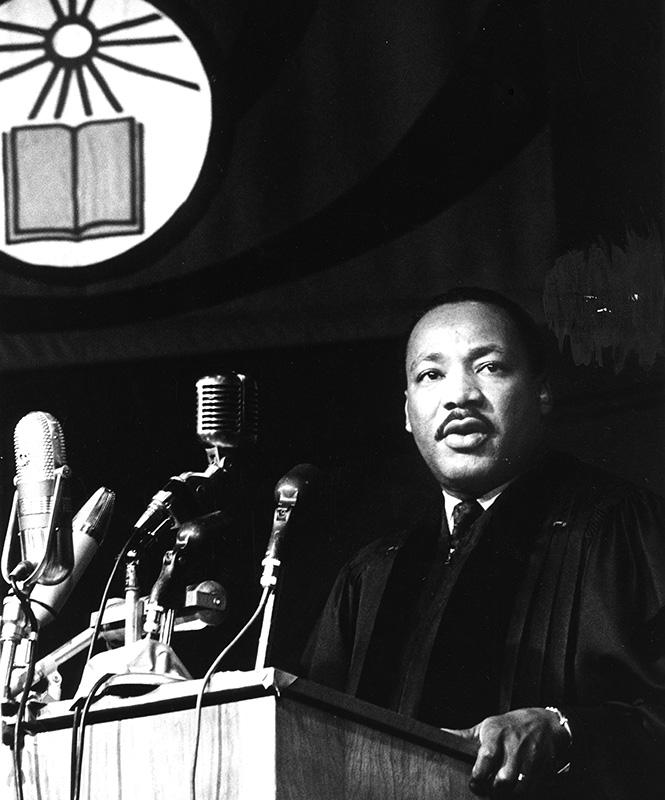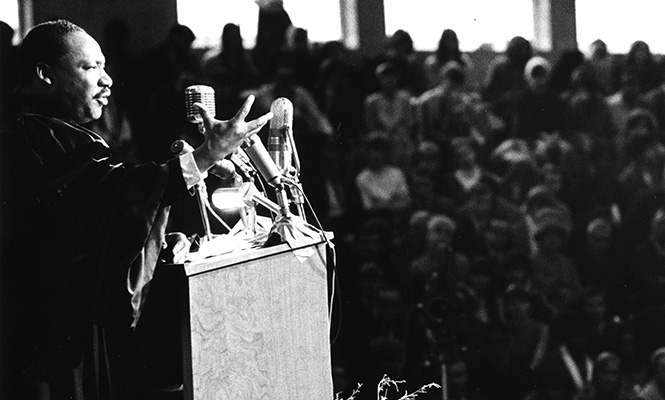


By Noa Goldman
goldmann@grinnell.ed
This year on Jan. 20, Martin Luther King Jr. day, Grinnell College celebrated the late civil rights leader’s legacy with performances by Hasan Davis, a juvenile justice reformer/consultant and motivational speaker. Davis prides himself on being a hope dealer, providing hope and opportunities to young children in difficult situations.
Sponsored by the Grinnell Office of Diversity and Inclusion and the Rosenfield Program, Davis performed two highly attended programs and consulted with Grinnell College students and staff about racial equality on campus. Discussing his experience on campus he stated that “it has been great meeting with students and leaders across campus and talking to them about the kind of things that they would like to do and like to do better here and how I can support that kind of work, so pretty exciting,”
On MLK Day, Davis performed a dramatic monologue from his book The Journey of York at the Loft Theater to a crowded audience. The Journey of York highlights the role of William Clark’s slave York, a member of the famous Lewis and Clark 19th-century westward expedition. Wearing a bear claw necklace and holding a walking stick, Davis told of an enslaved man who was treated almost as an equal on the epic voyage, even given the right to vote on matters related the voyage, but was forced back into slavery after three years.
On Tuesday, Davis gave a more personal presentation about his childhood spent in crisis, his stop-and-start path through the educational system, his time as commissioner of the Kentucky Department of Juvenile Justice and his decision to leave and focus on advocacy and reform. Through his passionate and intensely personal speech, Davis demonstrated the crushing reality of the cycle of poverty and injustice in the United States, challenging the audience to help those with fewer opportunities than they have had.
Throughout the speech, Davis cited Dr. King’s seminal quote: “Life’s most persistent and urgent question is: ‘What are you doing for others?’” He outlined concrete steps for the audience on how to be hope dealers themselves and the need to hold your values as worthy of combatting any injustice, ending with the call to “Deserve Victory!” in order to live a life of service.
Off campus, the greater Grinnell College community also celebrated MLK day. The Grinnell-in-Des Moines Alumni Group organized their fourth annual volunteering event with Meals from the Heartland and packed hundred of thousands of meals to be donated. Kristen Plowman ’04, the event organizer, stated that having a day off for MLK day should be a call to action. “This isn’t just another bank holiday, there is a reason we have this day off,” Plowman said. “[Serving others] reinvigorates us!”
Presidential candidate Andrew Yang also held a campaign event at Grinnell’s Prairie Canary on MLK Day. Marnie Monogue ’21, who attended the event, told The S&B that Yang referenced Dr. King throughout his speech, specifically when discussing the essential policy of his platform: universal income. Yang presented the freedom dividend as “honoring” MLK’s legacy. In fact, Martin Luther King did mention a guaranteed middle class income in his 1967 book where Do We Go From Here: Chaos or Community.
Last year, the College commemorated Dr. King’s legacy with an event centered around a recording of the speech supporting civil rights he gave on campus in 1967. The Rosenfield Program also organized a reading of the 1963 letter King wrote while imprisoned, which defends nonviolent protests against racism, Letter from a Birmingham Jail. These events were focused on honoring the life and work of Dr. King. This year the celebration on campus was focused on the evolution of his mission, explicitly calling for justice in the present.
Davis told The S&B that MLK day should not be just simply talking about Dr. King. He saw his performances as a means of “looking back to move forward.”
“[Martin Luther King Jr.] wanted us to be figuring out what the next dream is, what the vision is and how we move the world,” said Davis. “Our job is to be the fire, and so to just keep going back to the spark that starts it, we are not getting anything done.”





















































